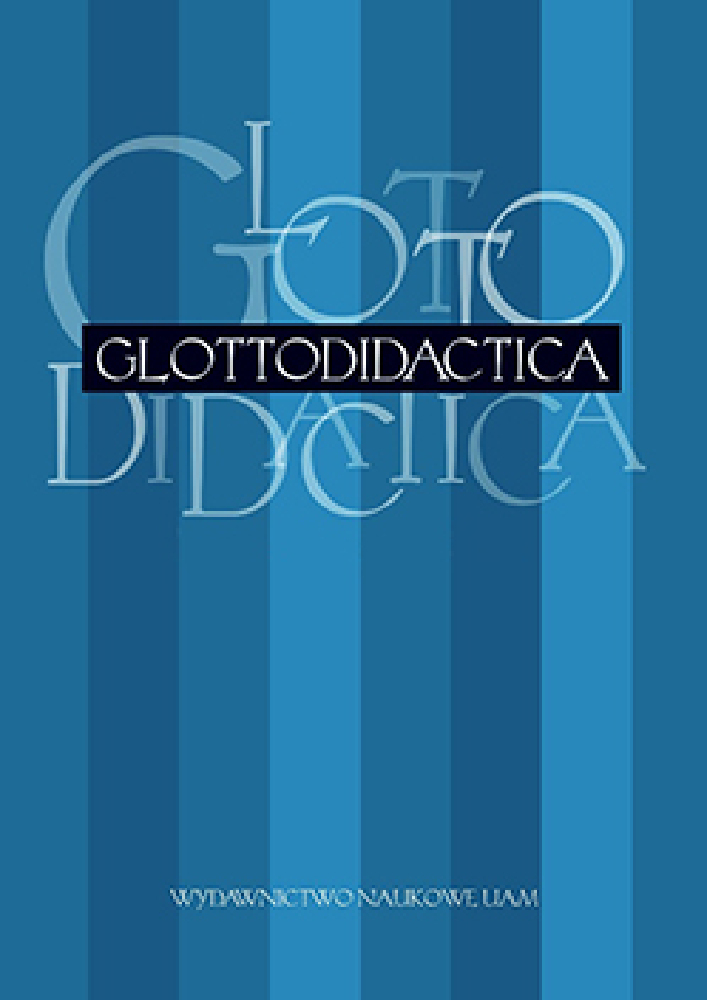Abstract
In recent years, the “crisis of German studies” has become an increasingly current topic within academic discourse. This SUBJECT, more precisely defined as “legitimation crisis of traditional German studies”, has been long debated in Germany. Legitimation is a common principle in the fields of law, political science, and sociology. It refers to other principles such as ‘legitimity’ and ,justification’. Since the Nineties, the crisis in German literature studies appears to be rather an identity crisis, the origin of which can be seen in the centrifugal forces of attraction of several other disciplinary approaches. Something similar has happened – worldwide – in the field of German linguistics, and even in the branch of German as a Foreign Language teaching practice, due to the progressively increasing habit of providing the GFL-object with attributes specifying its specific purposes, for instance: German for Occupational Purposes, German for Business, German for Medical Purposes, for legal Professionals, Engineers, German for young, adult, senior learners etc. The question of which variety of German should be considered at the university level depends upon several factors, a simple answer is therefore not forthcoming. It is extremely important for the modern field of German studies especially within the “German as a Foreign Languagecountries”, that the object „GFL for humanistic purposes” be clearly defined, at least as a variety within the multiplicity of given alternatives.
References
Appelt, E.P. / Hanhardt, A.M. 1947. Deutsche Gespräche. Boston: D.C. Heath and Company.
Deutsch, S. 19037. Medical German. A Manual. Designed to Aid Physicians in their Intercourse with German Patients and in Reading Medical Works and Publications in the German Language. New York [1884].
Duden. Die Grammatik. 20096. Mannheim/Leipzig/Wien/Zürich: Dudenverlag.
Eroms, H.-W. 2008. Stil und Stilistik. Berlin: Erich Schmidt
Foschi Albert, M. 2014. Der Autor und Erzähler spricht. Eine textstilistische Untersuchung der Erzählinstanz in „Die gerettete Zunge“ von Elias Canetti. In: Der Deutschunterricht 2, 50-60.
Franck, H. J. 1973. Geschichte des Deutschunterrichts. Von den Anfängen bis 1945. München: Hanser.
Fritz, T.A. / Koch, G. / Trost, I. (Hrsg.). 2008. Literaturstil – sprachwissenschaftlich. Festschrift für H.-W. Eroms zum 70. Geburtstag. Heidelberg: Winter.
Glück, H. 2002. Deutsch als Fremdsprache in Europa vom Mittelalter bis zur Barockzeit. Berlin / New York: de Gruyter.
Greiner, U. 1997. Die Krise der Germanistik – vorbei. Annäherungen an den Stand der Dinge in fünf Schritten . In: „Die Zeit“ 14. <http://www.zeit.de/1997/14> (zu leletzt abgerufen a, 11.11.2015).
Hoffmann, M. / Keßler, Ch. (Hrsg.). 2003. Berührungsbeziehungen zwischen Linguistik und Literaturwissenschaft. Frankfurt/M.: Peter Lang.
Klein, W. / Schnell, R. (Hrsg.). 2008. Literaturwissenschaft und Linguistik. Zeitschrift für Literaturwissenschaft und Linguistik LiLi 38, 150.
Klein, W. 2008. Die Werke der Sprache. Für ein neues Verhältnis zwischen Literaturwissenschaft und Linguistik“. In: Zeitschrift für Literaturwissenschaft und Linguistik 150, 8-32.
Martinez, M. / Scheffel, M. (1999). Einführung in die Erzähltheorie. München: C.H.Beck.
Nickisch, R.M.G. 1999. Der Brief und andere Textsorten im Grenzbereich der Literatur. In: H. L. Arnold / H. Detering (Hg.). Grundzüge der Literaturwissenschaft. München, 357-364.
Paul, L. 1978. Geschichte der Grammatik im Grundriß, Weinheim / Basel: Beltz.
Stockinger, L. 2013. Hermann August Korff. Geistesgeschichte in drei politischen Systemen. In: Öhlschläger, G. / Schmid, H.U. / Stockinger, L. / Werle, D. (Hrsg.). Leipziger Germanistik. Beiträge zur Fachgeschichte im 19. und 20. Jahrhundert. Berlin/Boston, 193-232.
Tschirner, E. 2014. Zur Skalierung von Deutsch als Bildungssprache. Internationale Referenzrahmen im Vergleich. In: Germanistik in Brasilien: Herausforderungen, Vermittlungswege, Übersetzungen. Beiträge der DAAD-Germanistentagung 2013 mit dem Partnerland Brasilien. Göttingen: Wallstein, 93-108.
Weinrich, H. 1985. Wege der Sprachkultur. Stuttgart: Deutsche Verlags-Anstalt.
License
Copyright (c) 2015 Marina Foschi Albert

This work is licensed under a Creative Commons Attribution-NoDerivatives 4.0 International License.
Authors
Authors of texts accepted for publication in Glottodidactica are required to complete, sign and return to the Editorial team’s office the Agreement for granting a royalty-free license to works with a commitment to grant a CC sub-license.
Under the agreement, the authors of the texts published in Glottodidactica grant Adam Mickiewicz University in Poznań a non-exclusive, royalty-free license and authorize the use of Attribution-NoDerivatives 4.0 International (CC BY-ND 4.0) Creative Commons sub-license.
The authors retain the right to the free disposal of the work.
Users
Interested Internet users are entitled to use works that have been published in Glottodidactica since 2016, under the following conditions:
▪ attribution – obligation to provide, together with the distributed work, information about the authorship, title, source (link to the original work, DOI) and the license itself.
▪ no derivatives – the work must be preserved in its original form. Without the author's consent, it is not possible to distribute the modified work in the form of translations, publications, etc.
Copyrights are reserved for all texts published before 2016.
Miscellaneous
Adam Mickiewicz University in Poznań retains the property right as a whole (layout, graphic form, title, cover design, logo etc.).
Privacy statement
The names and email addresses published on this journal site will be used exclusively for the purposes declared by this journal and cannot be used for any other purpose or by any other party.




